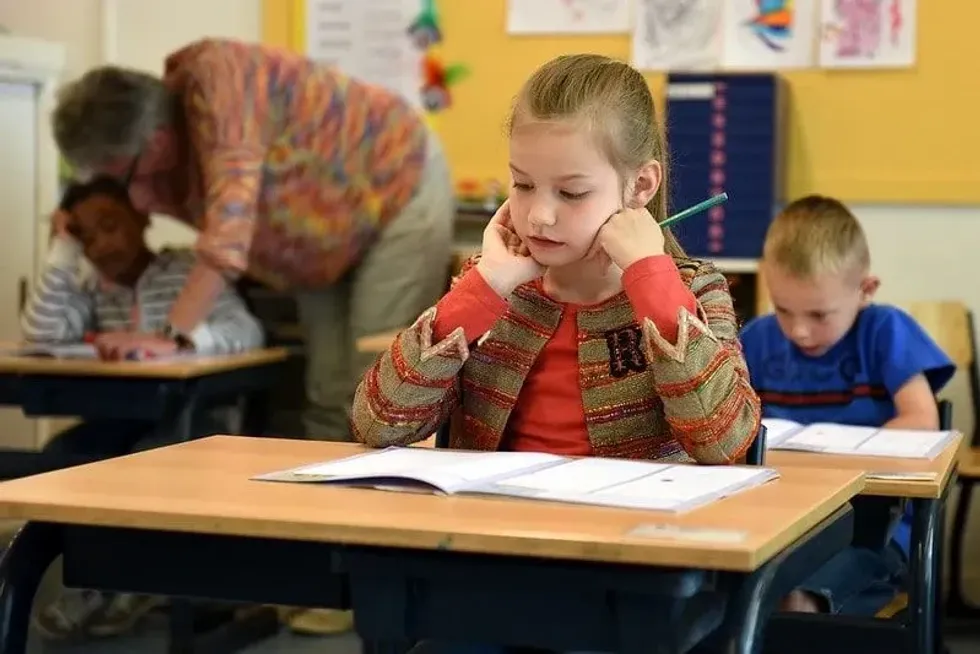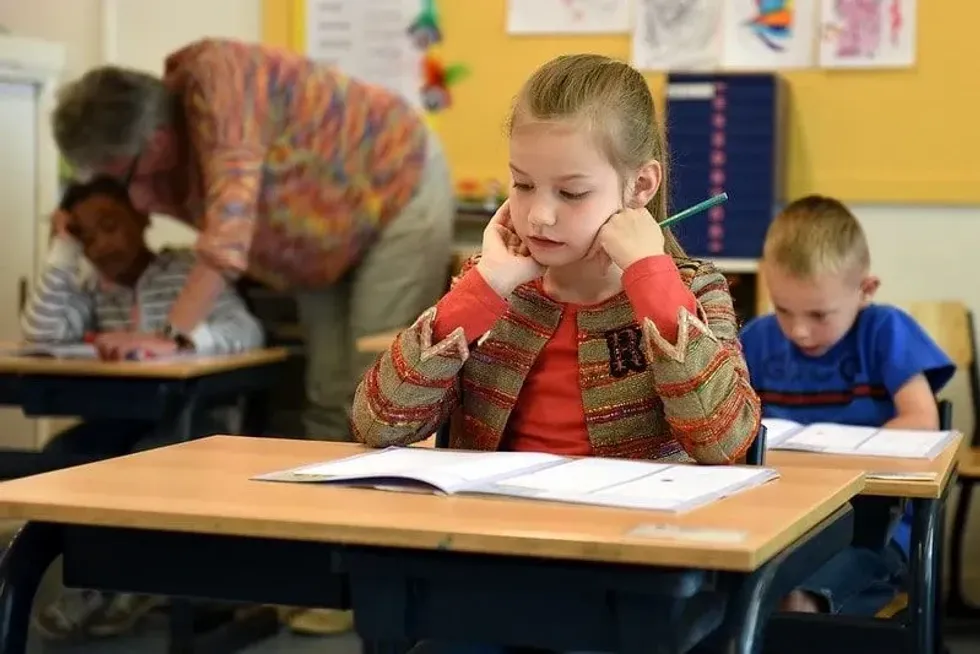Image © Pexels.
If you are about to commence the statementing process for your child, it's natural to feel overwhelmed with a mountain of information and not to mention all of the complicated terms. At Kidadl, we have broken the steps down for you and explained lots of those phrases you are sure to come across.
If you have concerns about your child's progress at school and feel something may be preventing them from moving forward, first things first, have a word with the class teacher, and then decide if you need to take things further to the school SENCO and look into the child's special educational needs.
What is a SENCO?
A SENCO, (short for special educational needs co-ordinator) is a specialist teacher who takes care of special educational needs within a learning environment.
Within the UK every school is required to have a SENCO to support students who have additional needs and learning requirements. The SENCO's role includes assessing, monitoring and planning the ongoing progress for children with special educational needs, it's their job to make sure your child's needs are met to the best level possible.
They also help and support other educational staff with training and co-ordinate between parents, teachers and additional professionals such as therapists.
When To Speak To A SENCO

Image © Pexels.
If you think something may be holding your child back from learning and your child does not have any form of diagnosis, it's a good idea to express your concerns to your SENCO. Many concerns can be managed effectively by your child's class teacher.
The SENCO is there to support and observe in case of a more significant underlying difficult. This could be serving as a barrier to progressing.
The SENCO may give pointers to the teacher to help your child develop, or should they suspect there could be something hindering your child's learning they can initiate an EHCP plan (Education Health and Social Care plan). These are also known as statuary assessments.
You may have heard the term special educational needs statement, this was replaced in 2014 by the EHCP plan.
Seeking further advice with regards to your child's needs isn't a one-way track, or necessarily results in a label, but it is an excellent way to ensure your child receives the support required to fulfil their potential.
Should they suggest an EHCP plan, they will act as the middle person between the teachers and yourself to ensure the requirements of the plan are met.
What Is A SENCO Assessment?
Image © Pexels.
The SENCO may carry out further assessments to identify any needs your child may have. This can be done through a range of methods, including classroom observations, school assessment materials or in conjunction with outside entities such as the Educational Psychologist.
Assessments to consider may include;
Communication and interaction
- Speech and Language Assessment.
- Blanks Level Language assessment from assessment providers, Elklan.
- Speech and Language Therapy Assessments, these may include sound production (phonology), language understanding (comprehension), social skills, attention, or other relevant assessments of your child's needs.
Cognition and learning
- Subject-specific assessments.
- Test of visual perception (TVPS) assessment tool
- Education Psychology visits – which may include assessments of memory, understanding, reasoning, logic, and general skills assessment.
- Frameworks from the Cognition and Learning team.
Social, Emotional and Health Difficulties
- Assessment is made through observations of your child.
- Self-esteem assessment (Cognitive behavioural therapy-CBT resources)
Sensory and/or Physical Difficulties
- Movement Programme baseline assessments.
- Handwriting assessment using OT (Occupational Therapy) referral.
The outcomes of some of these assessments can help you understand if you wish to apply for the EHCP, and you may include them within your application request.
What Is The EHCP Plan?
The purpose of an EHCP plan is to make special educational provision to meet the individual educational needs of your child, to secure the best possible outcomes for them across education (SEN Code of Practice p.142). This is a legal document that describes a young person's or child’s special educational needs well as health and social care needs.
The EHCP is a legally binding document which protects the provisions your child's needs. It explains exactly what is a statemented child entitled to.
If the plan states that your child needs one-to-one help in the classroom, then that must be provided. The plan covers a child up to the age of 25, and can also offer support or a specialist placement at further educational colleges (not it does not cover university provision).
Request For A Needs Assessment

Image © Pexels.
The first step to getting the plan is the needs assessment. If your school is experienced with special needs, they may commence the process for you.
However, you can request one yourself by contacting your local authority's special educational needs department.
From your LA, you can then request an assessment for an EHCP (some authorities have a form to complete on their website). If you feel your school is dragging its feet or not sharing your sentiment that your child needs extra help, don't worry-you can drive this process yourself.
Within your request, they will want to see plenty of evidence that your child requires additional supportive measures to mainstream education. It's here you can explain your concerns and difficulties your child is experiencing, and why you feel your child needs extra support.
It's important to remember that an EHCP needs assessment is different from evaluations that your child's school may carry out. It also varies from tests or visits by an educational psychologist, specialist teachers or speech and language therapists.
The local authority must reply to you in writing within six weeks of your request, as to whether or not they are going to start the assessment process. If you don't get the answer you wished for, you can appeal the decision.
After The Assessment
Once the assessment has been undertaken, your local authority must decide as to whether to issue an EHCP plan for your child.
If the local authority decides to provide an EHC plan, you'll then receive a draft EHC plan. You will then have 15 days to express your views to the local authority about the specific plan.
The final proposal must be provided within a maximum of 20 weeks of the initial request. Plans are reviewed annually to see if they still are applicable for your child.
There is no national standard format for the EHCP plan. However, it must contain specific sections that are clearly labelled.
The areas are:
A: The views, interests and aspirations of you and your child.
B: Special educational needs (SEN).
C: Health needs related to SEN.
D: Social care needs related to SEN.
E: Outcomes - how the extra help will benefit your child
F: Special educational provision (support).
G: Health provision.
H: Social care provision.
I: Placement - type and name of school or other institution (blank in the draft plan (link to info about draft plan))
J: Personal budget arrangements.
K: Advice and information - a list of the information gathered during the EHCP needs assessment.
Requesting A Specific School
Once you receive the draft ECHP plan for your child, or an amendment notice, you are able to request a specific nursery, school or college.
This could be when you are getting an EHCP plan for the first time; if the EHC plan is being amended after an annual review; or if the EHC plan is being changed at any other time (for example, if you move schools and the EHC plan needs to be amended to indicate that).
What If You Are Not Happy With The ECHP Plan?
It is vital that your child's EHCP covers all areas of your child's special educational needs, and makes a very clear outlined provision for it.
LAs often use phrases such as that a child 'would benefit from' occupational therapy. With such a vague statement written, it is hard to ensure the need is met.
It's a good idea for it to be clear and quantified, for example, clearly stating the child must have therapy in one group session of 45 minutes and one individual session of 45 minutes a week.
Although it can make for some reasonably painful reading, it's also essential the plan reflects a picture of every child at their worst. The reason for this is so the educational and therapy staff can be well prepared for the rougher days, and the right supportive measures are in place for your child's needs.
If you have undertaken any external private reports, the local authority is obliged to consider these.
Be aware; they may try to reject them. For example, your private occupational therapist may recommend that your child should have two hours of one-to-one therapy with a qualified occupational therapist per week, the LA may then try to argue that programmes devised by an occupational therapist but delivered by a teaching assistant will be enough).
If you feel you reach a stalemate on these type of points, you will need to go to the SEND Tribunal for a decision.
The SEND Tribunal will judge on the dispute between you and the local authority on the contents of an EHCP, and the school named in the EHCP as the placement for your child.
Note this information is correct for England. Scotland, Northern Ireland and Wales may follow different statementing procedures for your child's needs.










